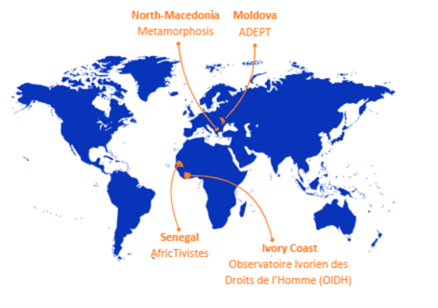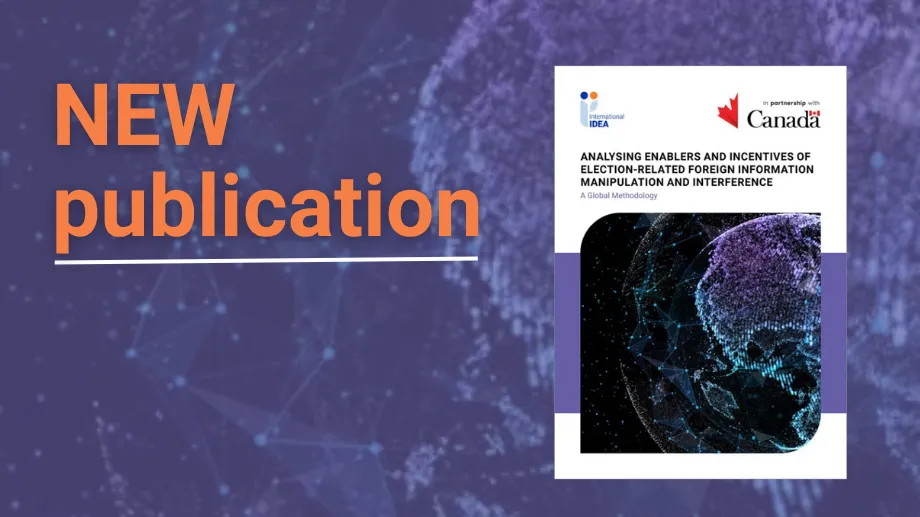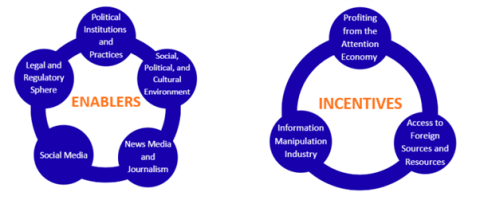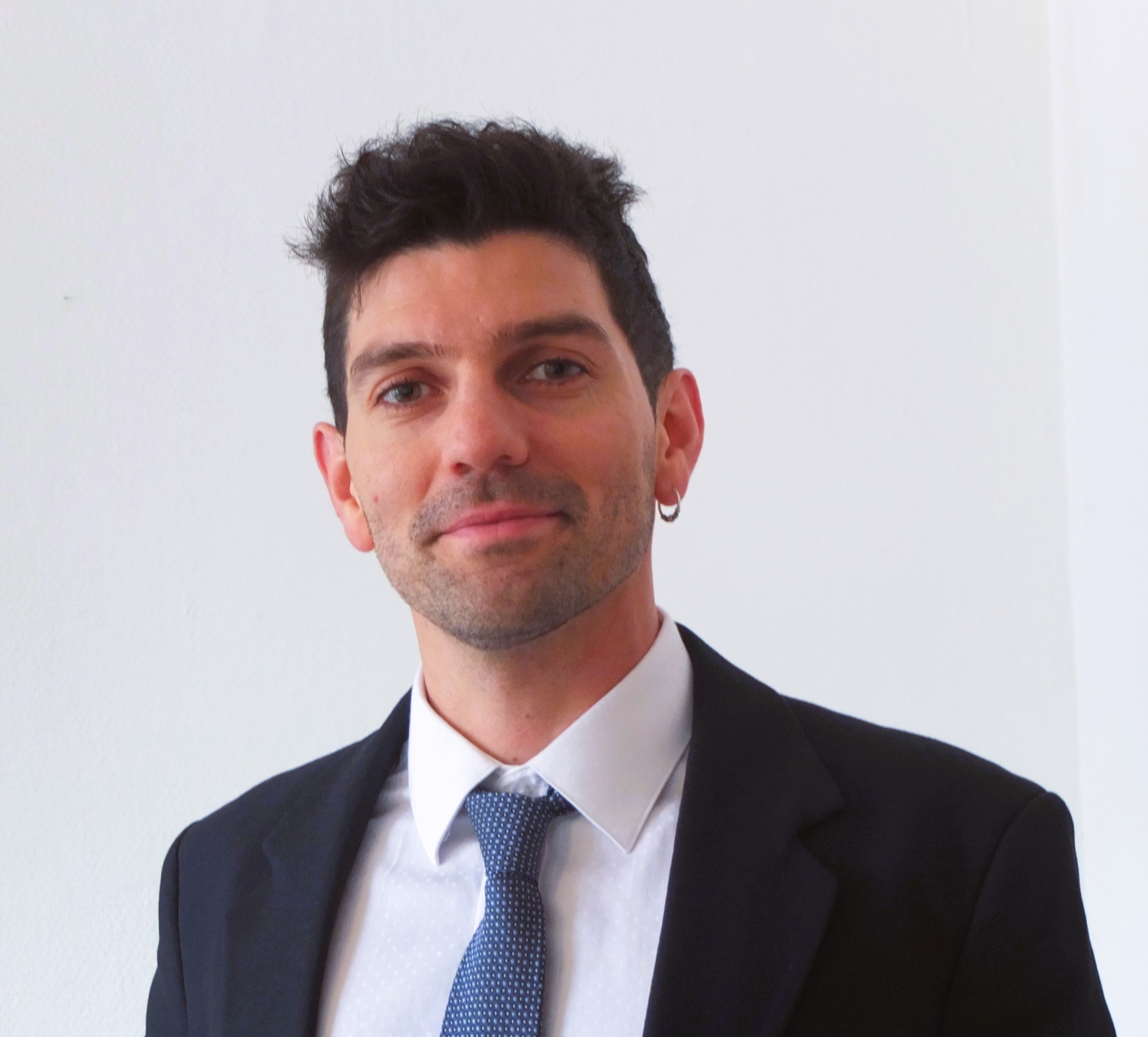
From recognition to resilience: Methodology to counter foreign information manipulation and interference

As part of the project, a major milestone was the publication of a global methodology to analyse the incentives and enablers of FIMI, published in both French and English. This tool guides and empowers organisations to conduct context-specific research and mapping of the factors that shape informational ecosystems and create vulnerabilities vis-à-vis FIMI. This report was drafted by renowned academics Federico Giulio Sicurella and Tijana Morača.
The methodology creates a framework to understand the main vulnerabilities that are being exploited by foreign actors to weaponize the information ecosystem to erode the integrity of elections. It guides civil society actors in taking a comprehensive look at factors that both enable and incentivize foreign interference with the intention of transforming such analysis into actionable recommendations and subsequent improvements in the resilience of the country.
Four leading civil society organizations in partnership with International IDEA have implemented the methodology, increasing the awareness and knowledge on key enablers and incentives of foreign interference. The organisations are:
• ADEPT – Moldova
• Metamorphosis – North Macedonia
• Observatoire Ivorienne de droits de l’homme – Ivory Coast
• AfricTivistes - Senegal

The implementation of a global methodology to establish a structured framework to analyse the enablers and incentives behind election-related FIMI is crucial for developing social resilience and building structural knowledge, skills and competences.
But firstly, why does a global methodology for CSOs matters?
A global methodology for identifying the incentives and enablers of foreign interference offers a comprehensive framework to understand and address national level vulnerabilities and challenges in countering FIMI. Rather than analysing misleading or manipulative content itself, International IDEA’s methodology examines the structural factors that allow coordinated and intentional FIMI activity to take root. Understanding societal and institutional dynamics at play makes possible to craft more effective strategies to counter specific tactics, techniques, and procedures (TTPs) used to manipulate the information environment and erode electoral integrity.
International IDEA’s methodology to counter FIMI is designed for global application, allowing for context-specific cultural and societal nuances to be reflected. To achieve this, the methodology highlights societal and institutional layers, which have been classified into 16 incentives and 6 enablers, grouped into 8 clusters:

Enablers such as a lack of media pluralism, inconsistent and lax moderation platforms or inadequate political finance regulation might facilitate the spread of FIMI in democratic societies. In light of this, it is not only the authorities that should embrace solutions of FIMI but the entire society. This is what the European External Action Service (EEAS) and other organisations refer to as a whole-of-society approach.
Only an EU approach? Reaching a global scope
An important question arises when addressing and countering FIMI in different regions: does a concept mostly used to refer to events in Europe applied meaningfully in contexts as distinct as Senegal or Ivory Coast?
Although the presence of foreign interference is a factual reality in countries in Africa, Asia and Latin America, as well as in Europe, some legitimate actors have expressed concerns that FIMI could be perceived as another externally imposed, even colonial, framework to shape national debates and policies. Interestingly, often these legitimate concerns are exploited by foreign actors to derail efforts from civil society and international cooperation efforts to protect elections and democracy.
International IDEA’s methodology adopts an agonistic approach to the origin of the interference, focusing instead on strengthening a country’s internal democratic resilience. The fundamental goal of the project is to strengthen resilience among diverse and democratic societies from within, anchoring it on public trust, accountability, and the respect of fundamental rights.
The primary objective of our project is to enhance the capacity of CSOs and enable a tailored understanding of FIMI at the national level, in order to identify priorities and distinguish differences between countries. A truly whole-of-society approach, therefore, allows CSOs to develop resilience within societies because it enables work to be carried out on political sensibilities around institutional and societal factors that may permit FIMI. On top of that, it allows CSOs to fulfil their role as watchdogs, scrutinizing measures implemented by authorities, and protecting a reliable civic space.
Preliminary convergences of FIMI worldwide
The national reports highlight areas of overlap in the nature of FIMI observed across these two different regions and four countries. They also reveal areas where further precision is needed to identify the societal and institutional factors that enable FIMI. Examining FIMI beyond the borders of the European Union can reveal critical insights into how democracies are reacting to and preparing to counter disinformation and FIMI.
For instance, identical enablers can be identified in two different countries, such as North Macedonia and Senegal. In both countries, the media ecosystem and its lack of pluralistic journalism reveal structural vulnerabilities that can be exploited by foreign actors. The lack of transparency regarding ownership in both Senegal (p.36) and North Macedonia (p. 19), combined with the limited resources of many media outlets, creates clear opportunities for foreign actors to disseminate their narratives and mislead citizens during elections. In North Macedonia, the relationship between the state and the media has developed into a “clientelist dynamic” that undermines informational integrity. Similarly, in Senegal, the close ties between political parties and media outlets create similar vulnerabilities within the informational ecosystem. Foreign state media can exploit these weaknesses to disseminate misleading narratives during elections, as seen with Russian outlets during the last Moldovan elections.
Another example is the role of social media in polarising public opinion and spreading disinformation. Public trust and societal and ethnic divisions are eroded and deepened through the weaponization of online platforms. Both the Senegalese and North Macedonian reports concluded that sensitive data exploitation (through microtargeting techniques), coordinated inauthentic behaviour, and astroturfing had been used by diverse actors to spread disinformation through social media. In the same vein, the Moldovan report mentions how the lack of platform regulation is being exploited by foreign actors to reinforce polarisation and weaken democratic discourses.
The common challenge, therefore, lies in effectively engaging electoral authorities to address these emerging threats.
What’s next?
The reports are only the first step. They have identified a number of areas of work and recommendations at the national level. International IDEA, together with its partners in these countries will convene policy dialogues, capacity-building workshops and a national public awareness campaign to improve knowledge and understanding of FIMI amongst CSOs.




